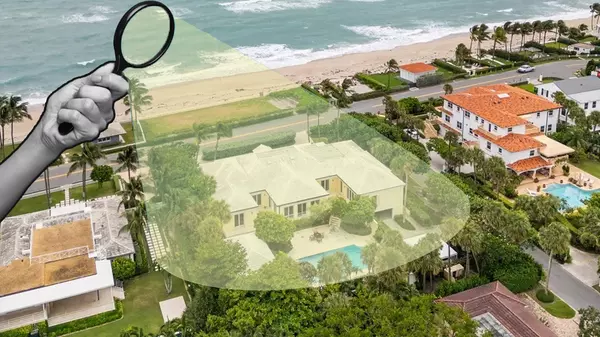President Donald Trump’s Immigration Policies Could Have Negative ‘Implications’ for Housing Market, Warns JPMorgan Chase

Josue Decavele/Anadolu via Getty Images
In his first few days as president, Donald Trump promised “emergency price relief” for housing, vowing to do more to help Americans afford homes—however, experts at JPMorgan Chase have now warned that his sweeping immigration policies could have the exact opposite effect.
Housing analysts with JPMorgan Chase say the president’s policies could have “complex implications for the housing market, particularly on the issue of affordability.”
While Trump, 78, has argued that reducing the number of immigrants living in the U.S. will lessen the demand for affordable housing, a new report from the financial giant argues that the landscape is much more “complex” than that, claiming that his plans could well see an even greater shortage in inventory.
John Sim, head of securitized products research at JP Morgan Chase, noted that “cutting immigration” will likely lead to a shortage of construction workers, which would only serve to prevent new, affordable homes from being built.
“By reducing immigration and lessening demand, Trump argues that housing costs can be reduced. It’s not that simple, though — approximately 30% of construction workers are immigrants, so there could be complex implications,” Sim wrote.

(CHARLY TRIBALLEAU/AFP via Getty Images)
“Cutting immigration would mean cutting labor supply in the construction industry, which could end up exacerbating the lack of affordable housing.”
The report goes on to address how the housing landscape might evolve during Trump’s second term but highlighted that he has “yet to unveil specific housing proposals” that will tackle the issues he has said he will overcome.
In the hours after his inauguration on Jan. 20, Trump ordered the executive branch to “deliver emergency price relief” for Americans on housing costs and other primary living expenses.
The order came in the form of a memo in which he stated, “Hardworking families today are overwhelmed by the cost of fuel, food, housing, automobiles, medical care, utilities and insurance.”
He ordered executive branch leaders to report back to the White House every 30 days on the progress they have made in lowering consumer costs, but made no mention of specific actions.
That memo didn’t seem to have any effect on Wednesday’s inflation report that revealed inflation ticked up to 3%—a troubling sign for consumers and mortgage rates.
JPMorgan Chase’s forecast points to Trump’s lack of specific housing proposals, but that he did offer two solutions:
- Streamlining zoning approval processes to shorten construction timelines
- Making federal land available for new housing construction projects
Analysts say streamlining zoning would need to be addressed at the local level, except on federal land.
Multifamily construction
The JPMorgan Chase report suggests multifamily units in areas zoned for single-family homes, but it points out that this looks “unlikely” under Trump’s administration. That’s because the president has opposed multifamily developments in predominantly single-family neighborhoods.
This goes back to Trump’s first term when he suspended and eventually ended the Department of Housing and Urban Development’s (HUD) Affirmatively Furthering Fair Housing (AFFH) rule, according to the Bipartisan Policy Center. He also vowed to prevent low-income housing development in suburban areas, a campaign promise he made again while stumping for his second term.
Most recently on the construction front, Trump threatened to impose new tariffs on Canada and Mexico but temporarily pulled back on that plan, which eased the fears of homebuilders who have warned such measures could lead to an increase in the cost of building materials.
Ripple effect
Any proposal could lead to rising inflation, which will result in higher mortgage rates says JPMorgan Chase. The privatization of government-sponsored home loan mortgage lenders, Freddie Mac and Fannie Mae could lead to higher rates.
Analysts warn, “all we can do is wait.”
In December 2024, the Realtor.com® economic research team noted in its 2025 housing forecast that Trump’s presidency could bring “significant shifts” to the housing market.
During his first term in office, Trump, who first gained fame as a real estate developer, pushed for tax cuts, deregulation, and business-friendly policies to spur economic growth.
Should he continue to pursue these same initiatives, they could have a big impact on everything from mortgage rates to new home construction, according to the forecast.
“While President-elect Trump can work quickly with his administration to implement some regulatory changes, other policies that will affect housing, such as tax changes and broad deregulation, require the cooperation of other branches and levels of government,” said Realtor.com® Chief Economist Danielle Hale at the time.
“The size and direction of a Trump bump will depend on what campaign proposals ultimately become policy and when. For now, we expect a gradual improvement in housing market dynamics powered by broader economic factors. The new administration’s policies have the potential to enhance or hamper the housing recovery, and the details will matter,” she added.
Realtor.com reached out to the White House for comment.
Categories
Recent Posts










GET MORE INFORMATION

